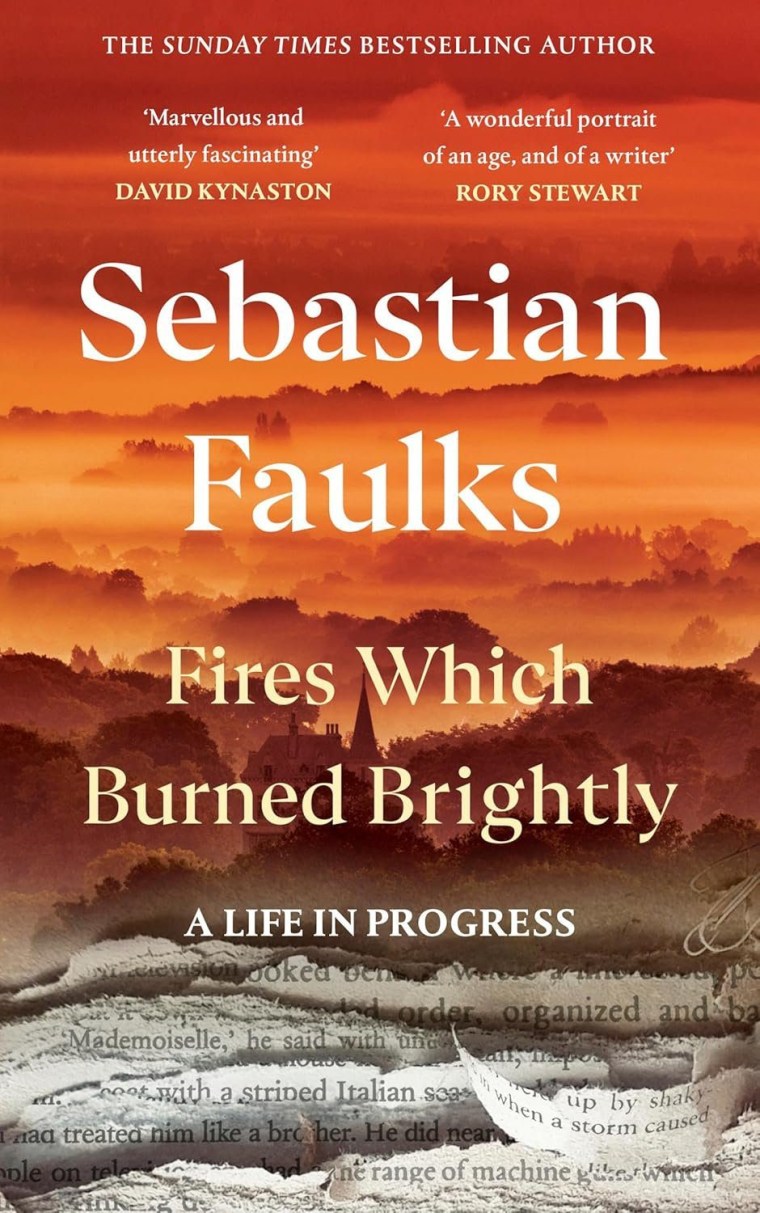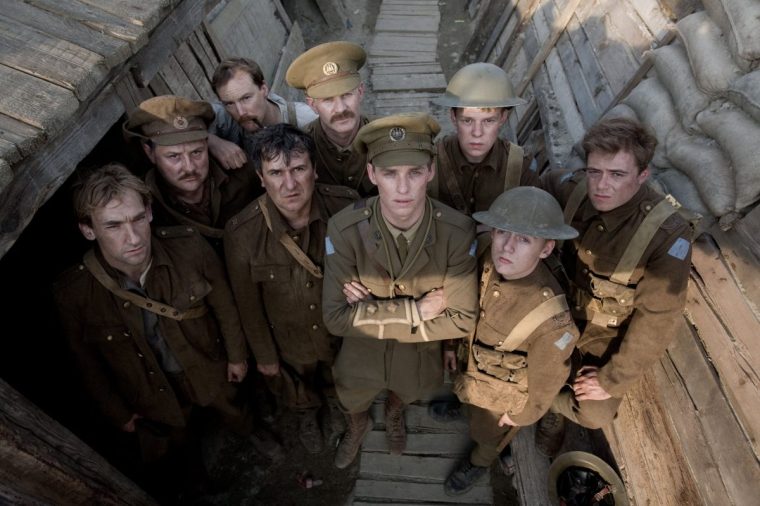Is it possible to be a reluctant memoirist? Reading the foreword to Sebastian Faulks’s, one might think that, yes, it very much is. “I never wanted to write a memoir because I didn’t think my life remarkable,” he explains.
To which a reasonable response might have been, “Well, don’t then.” But when the pandemic came along, it did for the author of the three million copies-selling First World War epic Birdsong what it did for so many creative types: encouraged him to examine the caverns of his own mind, and ponder, who am I? The result is Fires Which Burned Brightly, a memoir that is anything but a straightforward account of a life but rather a series of, in Faulks’s words, “enthusiastic pieces” that cover his early years, his writing career, and – coming so late in the book it almost reads as if he had forgotten to do so earlier – a tribute to his late parents.
Early on, he explains that “my publishers asked me to arrange [the chapters] in a chronological sequence”, but Faulks clearly took the advice with a pinch of salt. While it may begin with his childhood, the book then proceeds to jump all over the place. Reading it, you feel that the author must be a nightmare to watch television with if he is in sole charge of the remote control. Each chapter feels entirely standalone, any kind of connecting umbilical cord all but invisible. Nevertheless, each is also intriguing, fascinating and enlightening.
One caveat, though – it helps to be a fan of his, and to be comfortably au fait with his canon.

It does seem almost unavoidable that, however reluctant they may be, authors do feel duty bound at some point to write about their lives. (Or perhaps merely contractually obliged?) The great comic novelist David Lodge produced no fewer than three late-arriving volumes about his life when he reached his 80s, while more recently Geoff Dyer (67) did similar with Homework, a memoir so diligently detailed in its account of an ordinary suburban childhood that it recalled both Proust and one of those Channel 5 list shows entitled Weren’t the 70s Fab?!
To his credit, Faulks, 72, appears wary of becoming too rose-tinted in his nostalgic recollections, and so tries hard to get these out of the way upfront. He was born and raised in Berkshire, the son of a solicitor and a mother who was an avid reader of Charles Dickens. Like his older brother Edward, who would become a barrister (and later a member of the House of Lords), the young Sebastian was sent to boarding school where – he conveys, lapsing briefly, and inexplicably, into the third-person – “he” enjoyed playing cricket. A clever chap, he then went to Cambridge University, where his formative love of literature was tempered by an enthusiasm for rock music, with a particular fondness for the band Procol Harum, whose 1973 song “Fires (Which Burnt Brightly)” gives this book its title.
Cambridge was a hotbed of competitive intelligence, and Faulks, who never felt he fully fitted in, elected to manage the anxiety this produced by drinking. “The college bar allowed you a free pint if you could drink your first one in under five seconds, something I found quite easy,” he recollects. He also smoked an awful lot of weed, which may have calmed him in the short term, but ultimately sent him spiralling.
From here, he shifts perspective back to the first person in order to convey, over several pages, the full extent of his love of wine – “I thought Orvieto was a very second-rate drink”; “Even its admirers admit that Sauvignon Blanc has a bouquet of cat’s piss”; “While you can find a good Bordeaux for under £20, a comparably enjoyable burgundy will cost five times as much”. He then moves on to his abiding fascination with psychiatry and mental health. To those unaware of his back catalogue, it might not be immediately clear why he is doing this. But the reason is a pertinent one: the subjects feature prominently in two of his best novels, 2005’s Human Traces and 2021’s Snow Country, which told of the origins of psychiatry, and its subsequent progression.

Here, he writes that his interest was first sparked by a boy in his childhood believed to have “mental health problems”, who was accordingly afforded a wide berth. Later, during his own university years, Faulks experienced a “minor breakdown”, fuelled not only by his earlier anxiety, but also, he believes, by his reliance upon drink and drugs. The help he subsequently received made him both grateful and mindful of those who, living in earlier generations with similar issues, were far more likely to be confined to asylums.
So enthused is he on this subject that it takes him some considerable time to address his most famous work, perhaps because he remains acutely aware of just how vast a shadow it continues to cast on everything else he does. Birdsong, published in 1993, was his 600-page tale of two young soldiers in World War I that went on to seduce readers around the world. In the chapter “Do You Do Much Research?”, he talks about trips he took to northern France in the name of research, but also how crucial it is, as a writer of novels, to then blend fact with fiction so seamlessly that the reader doesn’t notice where they join.
“Most of it, really, I just made up,” he writes. “This [revelation] went down badly with a gentleman at a literary festival, [but] that’s what fiction is.”
Elsewhere, he recounts his years as a journalist – stints at The Telegraph and The Independent – before he quit to concentrate on books full time. There’s a chapter on what successful authors do between writing – in Faulks’s case, appearing on Radio 4 literary shows, and recording voiceovers for TV – and he recounts with great vim the rigours of book promoting across America when you happen to be both an inexpert salesman and afraid of flying. To get through it, he raids the hotel minibar a lot. “I came to rely on alcohol to bring me up to the functioning level of a normal person.”
It’s only towards the end of the book that he seems, somewhat abruptly, to remember the requirements of memoir, and so belatedly addresses his wife and three children, and precisely why he has mostly omitted to focus on them here: “They have a right to their privacy”. And then he briskly evaluates his parents’ lives, and all they went through – war, injury, the early loss of parents – and then commends their subsequent efforts to raise two sons in an atmosphere of relative calm.
“I feel, by contrast, as if I’ve lived in some absurd cocoon of undeserved good fortune,” he writes.
Part of that good fortune was the simple luck of being born in peacetime, and to such fundamentally decent people. But the rest was down to a talent that he alone developed. His life story, erratic as its telling is here, is filled with gratitude and charm, but is also full of evidence of the endless curiosity that is every great novelist’s weapon of choice.
‘Fires Which Burned Brightly’ is published by Hutchinson Heinemann, £20
